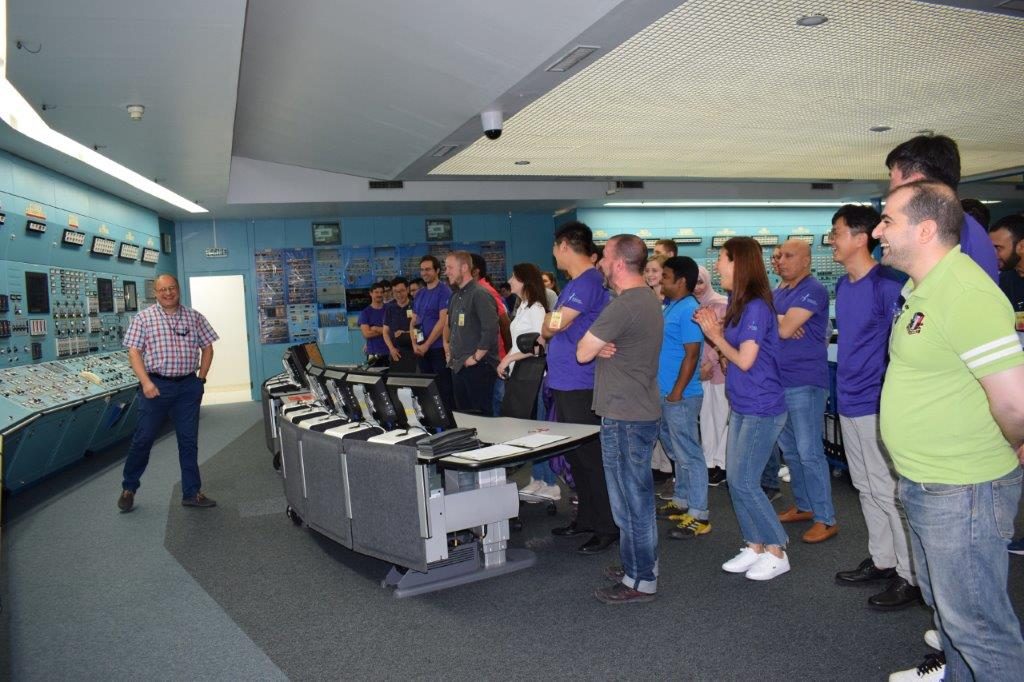The World Nuclear University makes the world a just a little bit smaller
It has been a wonderful experience participating in the World Nuclear University (WNU) for the last 12 years. The best part has been meeting fascinating people who are interested in nuclear power in so many different countries.
I am involved in two WNU programs, the WNU 3-day short
course – Key Issues in the World Nuclear Industry Today – and in the 5-week
long WNU Summer Institute (SI).
The short course takes place in countries all around the world
(last year included Brazil, China, South Korea and the UAE) and brings together
students, industry and government – arranging for both foreign and local experts
to talk to them about key industry issues while also supporting increased networking
as they discuss these issues amongst themselves. To date more than 3,500 people have participated
in this program.
The longer Summer Institute is a comprehensive program focused
on developing young future leaders (Fellows) in the global nuclear industry. WNU Fellows become part of an expanding
global network currently consisting of more than 1,100 Fellows from 84
countries. This program also takes place in different countries from year to
year. Last year it was held in South Korea. This year it is in Bucharest, Romania and
Baden, Switzerland – and next year will be in Japan.

While my focus has been predominantly on the subjects that I
lecture on, nuclear economics, and nuclear project structuring and financing, this
year while attending the WNU SI in Bucharest, I had an aha moment. Previously I was focused on the words “nuclear”
and “university” in WNU. But now I
understand. The most important word of
all is “World”.
We are living in challenging times and increased tensions amongst nations does have an impact on the global nuclear industry. This is an industry that is heavily politicised with most decisions taking place at the highest levels of government. Yet we all know that this is an industry that needs global collaboration to succeed. We all understand that what happens in one country impacts us all, as did the accidents at Chernobyl and Fukushima. Global organizations like the International Atomic Energy Agency (IAEA) as a governmental organization, and the World Association of Nuclear Operators (WANO) as an industry association, work towards raising the bar so that we all benefit from continuous improvement. The results are obvious, the global nuclear fleet is operating at its best and we have one of the safest industries on the planet. And even though many of the world’s nuclear plants are relatively old and near their end of life, it is through global cooperation that we are now striving to extend the lives of the global fleet, with great success.
I did my bit at this year’s Summer Institute, with its 82 fellows from 39 countries, in the first week of July. Yes, you heard correctly, from 39 countries. And although nothing new, this year it struck me how important it is as these young future industry leaders build strong international relationships. Each day at SI starts with a good morning from fellows from one of the participating countries, where they share a little bit about their country, people and culture. This is warmly welcomed by the others, as they love learning a bit about places they likely have never been, and about which they know very little. I witnessed one of the many exercises preformed by the fellows, where they learned about specific issues by talking about programs in different markets. One thing was absolutely clear. The discussion was about all different types of plants and markets – and the respect for each others’ backgrounds and programs was profound. There is no doubt that each of these 82 men and women will go back home with increased knowledge and a newfound respect for those from the other 38 countries; and most of all, with new friends from around the world that will last them the rest of their careers.
I have been seeing this happen for years now, but somehow
this year it made a big impression on me.
Getting to know each other a little bit better is an important step that
will make us all better off while building a stronger more vibrant global
nuclear industry.